|
The SNC-Lavalin controversy has been unusual on many fronts – a scandal that’s void of any financial payoffs or sexual peccadillos. And now it’s even featuring a lawsuit between Prime Minister Justin Trudeau and Conservative Leader Andrew Scheer. But today in The Conversation Canada, Randy Boswell of Carleton University looks at the history of lawsuits between politicians in Canada and reports that it’s actually a grand old tradition – one that dates back to the days of Sir John A. Macdonald.
Caroline Claussen of the University of Calgary reports on how a Calgary-based male-only education and mentorship program is responding to the #MeToo movement.
A group of geographers tells us about a project called MappingBack, which is allowing Indigenous groups to use maps as a tactical “weapon” to resist attempts by non-Indigenous industries to extract natural resources like timber, mining, oil and gas and hydroelectric development on their lands.
And finally….we’ve highlighted several stories about the horrible terrorist attacks in Sri Lanka that provide some background to help you understand some of the core issues behind this terrible tragedy.
Regards,
|
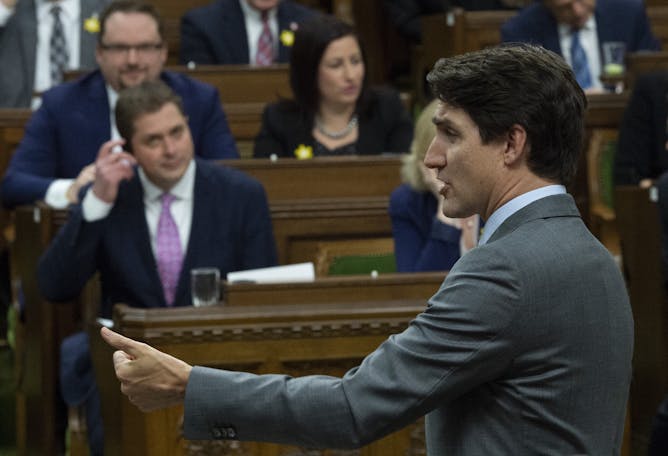
Prime Minister Justin Trudeau’s threat of a defamation suit against Conservative Leader Andrew Scheer is just the latest example of a political fight that’s turned litigious.
THE CANADIAN PRESS/Adrian Wyld
Randy Boswell, Carleton University
Politicians threatening to sue each other is not unusual in Canada, but the lawsuits seldom make it to court.
|
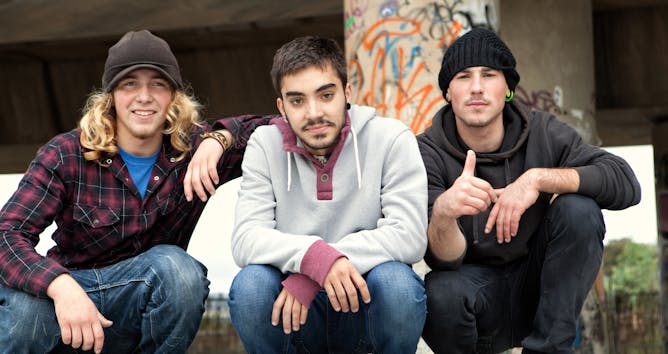
Building and maintaining a safe space is critical to engaging young men in challenging conversations.
(Shutterstock)
Caroline Claussen, University of Calgary
#MeToo has brought tremendous attention to the issue of sexual violence, and a Calgary-based male-only education and mentorship program is responding.
|
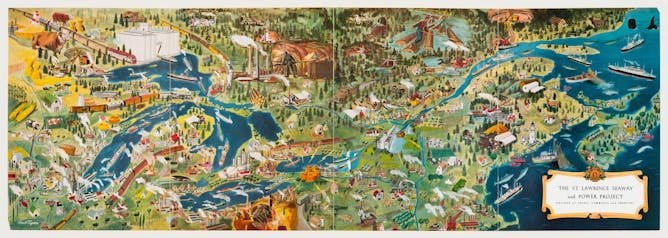
Maps can be a tool in the defense of Indigenous communities against extractive industries.
Canadian Centre for Architecture; Grant Tigner, painter. Seagrams Limited, publisher. The St. Lawrence Seaway and Power Project, in The St. Lawrence Seaway: The Realization of a Mighty Dream, 1954.
Sébastien Caquard, Concordia University; Annita Lucchesi, University of Lethbridge; Daviken Studnicki-Gizbert, McGill University; Leah Temper, McGill University; Thomas Mcgurk, Concordia University
Historically, western corporate maps have been privileged over Indigenous ones. But given the essential debate of territory in resource conflicts, maps are a crucial tool.
|
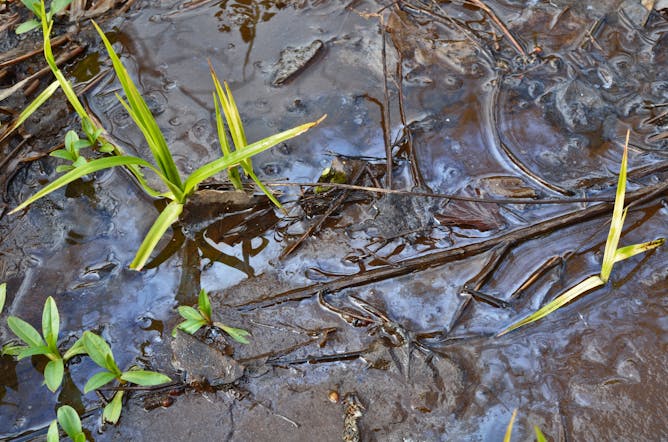
Les entreprises sont de plus en plus nombreuses à dévoiler leur performance en matière d'environnement. Mais entre ce qu'elles font et ce qu'elles disent qu'elles font, il y a plusieurs nuances…
Shutterstock
Michel Magnan, Concordia University
Les entreprises les plus performantes en environnement fournissent davantage d'informations et ont une gouvernance plus ouverte. Celles qui dissimulent ou nient risquent d'en subir les conséquences.
|
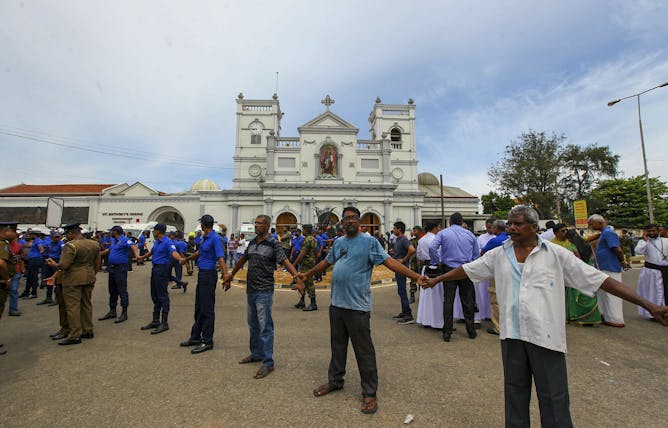
Sri Lankan army soldiers secure the area around St. Anthony’s Shrine after a blast in Colombo.
AP Photo/ Rohan Karunarathne
Mathew Schmalz, College of the Holy Cross
Suicide bombers struck Sri Lanka's churches and hotels on Easter Sunday, killings and injuring hundreds of people. Seven percent of Sri Lanka's population is Christian – most of them Roman Catholics.
|
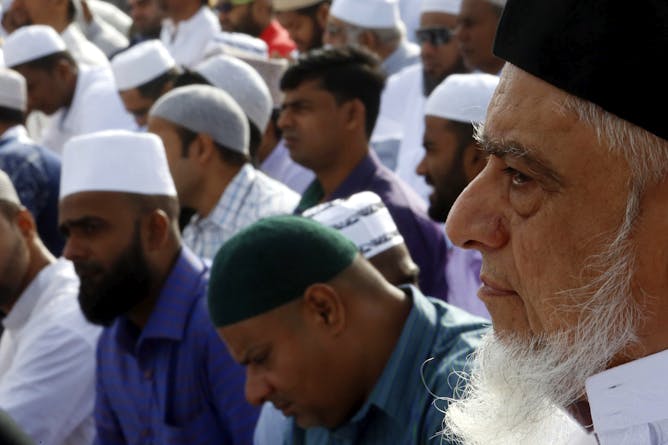
Muslim devotees offer prayers during Eid al-Fitr in Colombo, Sri Lanka.
EPA Images
Andreas Johansson, Lund University
A new chapter of violence has begun in Sri Lanka and old divisions may yet again escalate further.
|
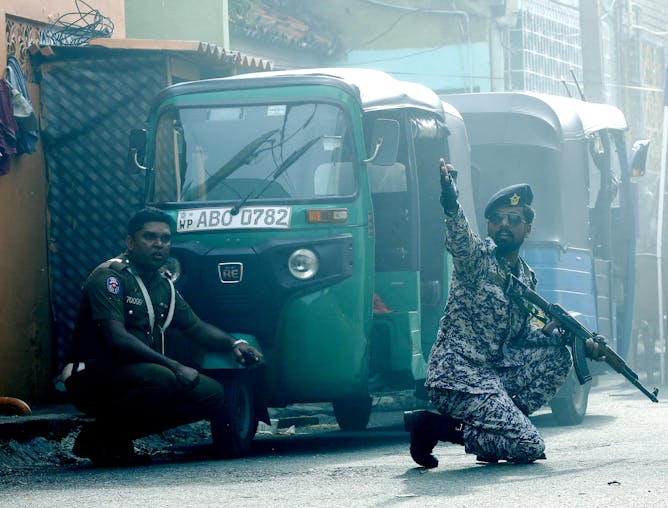
Security personnel near St Anthony’s Church Kochchikade in Colombo, Sri Lanka. April 22, 2019.
EPA Images
Meera Selva, University of Oxford
In a country with a weak press, social media played a key role in exposing the truth and building bridges between Sri Lanka's different ethnic and religious groups.
|